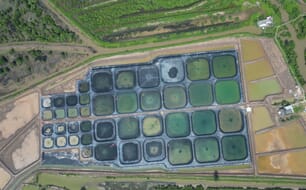AllAfrica reports that the farm was initially a Government venture before the then Catfish Farming Company - later renamed as the Eco Fish Farm - came in to assist.
However, sources said a formal contract between Government, through the Ministry of Fisheries and Marine Resources, and Eco Fish Farm has not been clinched yet.
The sources said the owner of the Eco Fish Farm, Ivo de Gouveia, has reportedly invested N$18 million into the project so far.
The delay in finalising the contract has resulted in the private owners not being able to expand the infrastructure, which it is anxious to do since it wants to increase the production.
Although tilapia is growing in popularity internationally, Eco Fish Farm is only producing for local consumption as it has not been able to produce sufficient quantities for export considerations.
The company has been able to sell between six to seven tons of fish per month. To stay afloat, a source mentioned, the company would have to produce at least one to two tons of fish per month.
The original idea was to produce enough to be able to export as well. But for the moment, this dream is deferred.
Aquaculture is a very costly undertaking because of the upkeep of the infrastructure, the provision of water for the fish dams and electricity.
Another large expenditure is fish feed. Fish pills are currently imported from Malmesbury in South Africa and fish meal obtained from Walvis Bay.
The Namibian government considers the development of aquaculture as one of its important growth areas, and are contained in the successive five-year national development plans and Vision 2030.
Vision 2030 states that by then, aquaculture would have grown to become a "thriving" industry. It further states that Namibian fish farmers would have capitalised on the country's productive advantages such as its still unpolluted, nutrient-rich waters and the development of wet aqua-feeds from sea fisheries.
Moreover, says Vision 2030, investors would have developed a marine aquaculture sector that uses intensive rearing methods to produce various types of high-value fish and shellfish, primarily earmarked for export markets.
Eco Fishing Farm is Tilapia King of Hardap
NAMIBIA - After experimenting with catfish and other freshwater species, the Eco Fish Farm at the foot of the Hardap Dam near Mariental has settled to produce tilapia. However, tilapia is not being fully exploited due to bureaucratic red tape restictions.
by Lucy Towers


